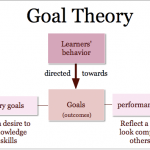Enhance personal performance by improving willpower

Over time, psychologists have shown the positive impact that willpower provides in day-to-day activities, from enhancing self-control to becoming more and more efficient at the workplace.
The American Psychological Association has entitled willpower, “the Psychological Science of Self-Control,” by stating that “at its essence, willpower is the ability to resist short-term temptations in order to meet long-term goals.” Willpower is usually built in terms of deploying the right motivation, belief systems, and perseverance.
Joe Robinson, in his article How to Build Up Your Willpower Muscle, speaks about “effortful control”, the function that requires the brain to concentrate on a specific effort. The ability to resist various temptations by improving self-control is called willpower. It represents an essential ability both at work and outside it. More often, this ability gives the idea of how serious a person’s character is.
Regarding this aspect, the organizational culture of a company should establish and preserve goals that align with employees’ inner goals, such as the need to learn, to develop various skills and abilities, the need for safety, the need to be appreciated and awarded, etc. An organizational culture has to be built on transparency, trust, communication, motivation, and cooperation. Willpower has the strength to align, preserve and honor organizational goals, by enhancing productivity.
Psychologist Frank Martela, in his work, Willpower: The Owner’s Manual: 12 Tools for Doing the Right Thing, identified 12 essential willpower tools that develop strong will:
- Mind your blood sugar: Eat well and rest enough. Your ability to stay focused and your self-control depends on your blood sugar.
- Invest in effective resting. Usually, it’s not the time that has to be managed, but your energy. 15 minutes of rest equal a large productivity investment.
- Train your mind by tackling challenges of appropriate size. The key to surpassing overwhelming challenges is to concentrate on one single task at a time.
- Do or do not, there is no try. Stay focused by clearly organizing your tasks: do not decide only what to do, but also when, and how. Precise scheduling is the key to getting things done.
- Forgive yourself to learn from your mistakes. The act of blaming oneself shifts the focus away from the essential. You have to identify the causes that have led to the problem and learn how to avoid them in the future.
- Don’t fight-or-flee, instead pause-and-plan. Willpower decreases when you undergo anger and stress. To be once again in control of yourself, you have to calm yourself down.
- You get what you measure. Motivation increases by measuring the necessary steps for achieving a target. Progress is more tangible when it comes to measurement.
- Small steps, big rewards. Often enough, distant goals overwhelm by complexity. They have to be sliced into appropriate pieces in order to be accomplished.
- Decide on clear limits. Plan precise targets in advance in order to have a clear and complete perspective on your work.
- Use the 20-Second Rule. In an ideal work environment, the good things have to be easy at hand, while the bad ones require effort. With a 20-second limit established between you and temptation, your self-control improves.
- Equip your willpower with the latest technological weapons. You may use gadgets such as your smartphone, computer, or tablet in order to set your willpower in motion.
- A shared goal is a stronger goal. This may be the most important step because humans were designed to work together. Similar people, with the same goal, will always fight stronger to achieve that particular goal.
Nowadays, in order to succeed, people need enjoyable motivational tools. Technology has created gadgets such as smartphones, tablets, or monitoring devices in order to help people increase their willpower and motivation. Such an example is the Experience design, Folkwang University of Arts’ research group from Germany has been working on several humorous gadgets to increase willpower and motivation.
The “Pleasurable Troublemakers” are alternative tools that support individuals to develop good habits, such as avoiding impulsiveness, or raising awareness on global issues such as pollution or the economy. The Experience design team understood people’s needs and thus created the ReMind, the Chocolate Machine, or the Forget Me Not Reading, special and enjoyable motivational tools that help to avoid bad habits and cultivating willpower.
Of course that this research group does not only design all kinds of gadgets but also runs studies regarding the effectiveness of their products and the impact they provide on the issues they claim to resolve. These tools seem to be very practical, funny, and easy to be used both at home and at the workplace. They monitor your personal performance, especially in avoiding various distractions or temptations by increasing willpower. Such inventions are usually a waste of time, money, and energy, but the Experience design research group provides the contrary.
Willpower represents a very important ability in enhancing personal performance. It not only improves day-to-day activities and performance, but it also increases productivity at the organizational level, especially when it comes to the organizational culture. Both employers and employees who enforce willpower support each other in order to succeed. By working in the same direction, success is guaranteed for both organizations and employees.
Image source:

Tags: Motivation, Personal performance





